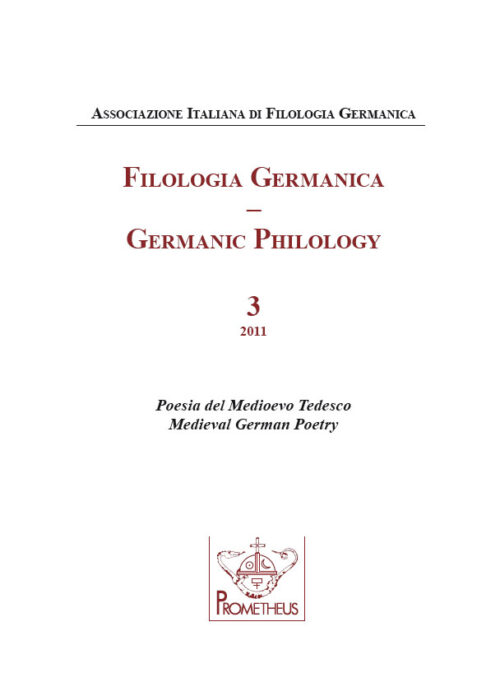Hermann di Turingia, politico e mecenate, alla luce della poesia cortese
DOI:
https://doi.org/10.14672/fg.v3i.2624Abstract
HERMANN OF THURINGIA, POLITICIAN AND PATRON OF THE ARTS, IN THE LIGHT OF COURTLY POETRY. Between the end of the 12th and the beginning of the 13th century, the court of Hermann of Thuringia was one of the most important literary centres in Germany, and many poets mention and praise Hermann as a patron of the arts and a politician. In this essay some poetic passages will be analyzed in order to reconstruct the literary and cultural life of the Thuringian court. It will be argued that two phases can be distinguished in the literary production. In the first phase Hermann commissioned three poets (Heinrich von Veldeke, Herbort von Fritzlar and Albrecht von Halberstadt) to write adaptations of classical works; these adaptations reproduce traits typical of courtly literature. Minne and Herrschaft are the main themes; the theme of Herrschaft, in the Eneit of Veldeke in particular, was intended to enhance the prestige of the Emperor Barbarossa and to legitimate the authority of Hermann of Thuringia. In the second phase poets like Wolfram von Eschenbach and Walther von der Vogelweide worked for this patron and his court, but the contents of their poetry differ from the previous phase. In fact, both poets were seeking support and shelter and were therefore prepared to praise their patron, but also to criticize the decay of the court, since courtly values and rules were no longer observed.
Pubblicato
Fascicolo
Sezione
Licenza

Questo lavoro è fornito con la licenza Creative Commons Attribuzione - Condividi allo stesso modo 4.0.
CC-BY-SA



